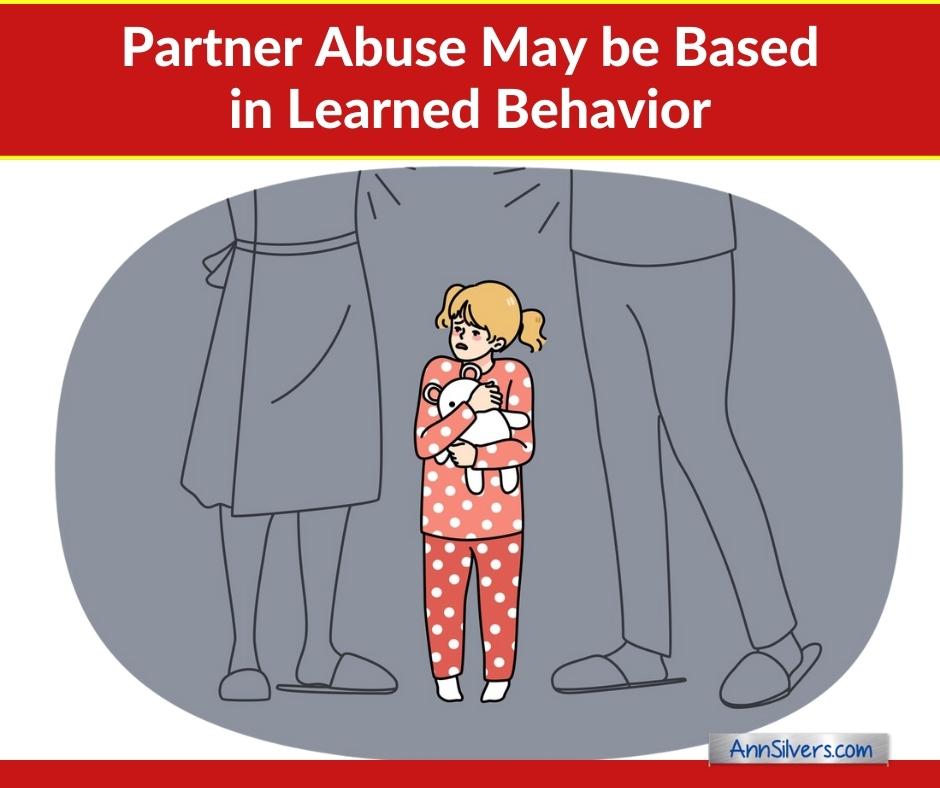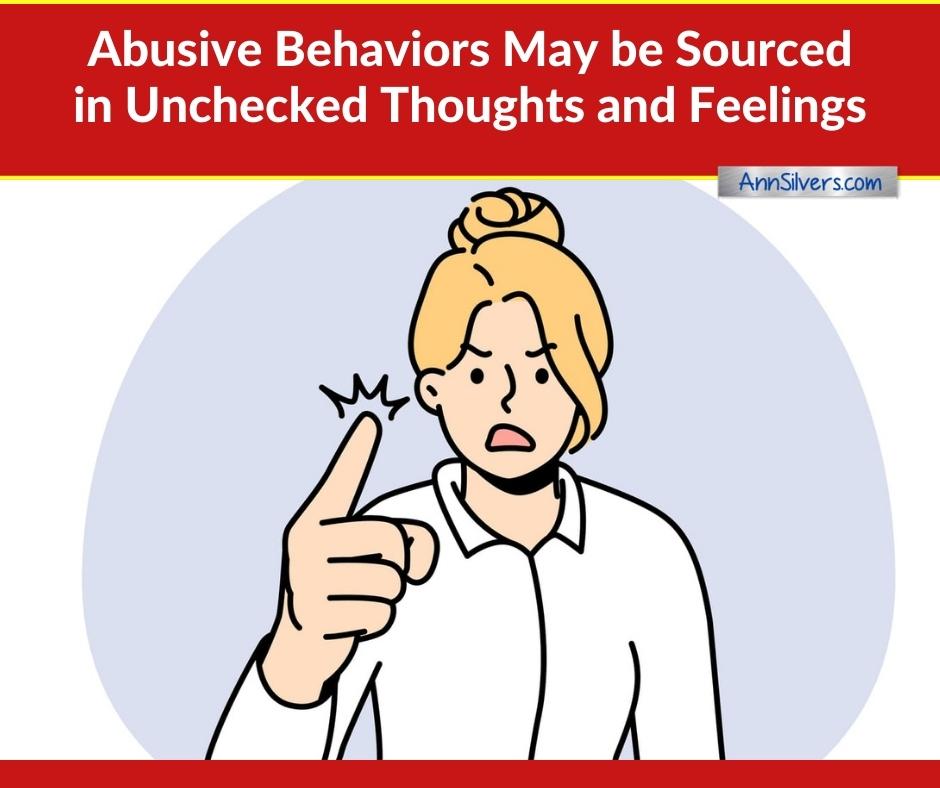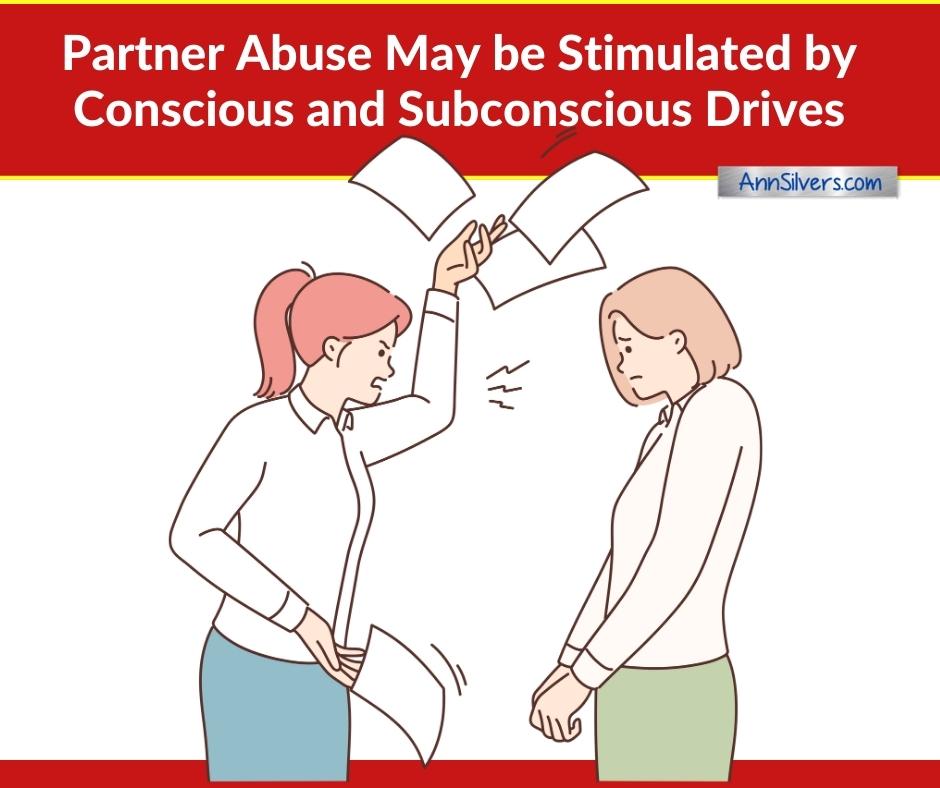Patriarchy Isn't The Only or Main Reason for Partner Abuse

The overemphasis of patriarchy as the reason for partner abuse and domestic violence is ill-placed and actually gets in the way of reducing the occurrence of partner abuse and thwarts the repair of people's lives.
What You'll Learn About Abuse and Its Many Causes
| What are Partner Abuse, Domestic Violence (DV), and Intimate Partner Violence (IPV)? |
| The Patriarchal Cause Theory |
| Why Abusive People Abuse Their Partners |
| Reasons for Behavior Don't Excuse Behavior |
| 71 Reasons Why Partners Abuse |
What are Partner Abuse, Domestic Violence (DV), and Intimate Partner Violence (IPV)?
Let's begin by defining partner abuse:
Partner abuse is a pattern of controlling, demeaning, and/or punishing behaviors and attitudes directed from one partner to another. Driven by self-centered motivations, it can happen in any romantic relationship—dating, cohabiting, or married—with current partners or ex's.
Partner abuse takes on many forms:
- verbal abuse
- sexual abuse
- financial abuse
- physical abuse
- spiritual abuse
- legal abuse
- emotional/psychological abuse
The terms domestic violence (DV) or intimate partner violence (IPV) are most directly associated with the physical and sexual violence, but the labels often take a broader swath and absorb non-violent behaviors, such as verbal and emotional abuse.
The Abusive Behaviors Continuum
It can be challenging to figure out whether a particular behavior is abusive because that same behavior might be properly labeled as reasonable depending on the circumstances.
Behaviors that are potentially abusive can be placed on a continuum that goes from non-abusive (totally healthy) to very abusive.
![]()
If a partner hits you out of genuine self-defense, then that behavior is non-abusive. If they hit you for other reasons, or use self-defense as an excuse for unwarranted aggressiveness, then that behavior moves into the abusive end of the continuum. Exactly where it is placed on the continuum depends on circumstances, how they hit, how often they hit, and other factors.
The Patriarchal Cause Theory
Many people working in the field of partner abuse and domestic violence think that:
(a) partner abuse is a male-to-female problem, and
(b) it occurs because of a patriarchal society.
I disagree with both (a) and (b).
Partner abuse happens in all sorts of gender configurations in straight and LGBTQ relationships.
The theory that partner abuse is because of patriarchy locks the door to recognition that partner abuse is not just a male-to-female thing. It supplies a one-size-fits-all explanation of partner abuse that in reality fits-very-few.
|
Attachment to patriarchy as the one and only cause of DV is one of the reasons why it is so hard for people to recognize abuse of men by women when they see it or are living it. Click here to see the other 7 reasons I've noticed for why this happens.
|
Why Abusive People Abuse Their Partners
My Why Partners Abuse list has 71 possible reasons. Only one of them is patriarchy. ( #8: "a society that supports abuse toward partners (male or female), ie patriarchy or anti-male sentiment.")
There are 70 other answers to the question: Why do people abuse their wives, husbands, girlfriends, boyfriends, partners?
People always have reasons for thinking what they think and doing what they do. They may not be good or healthy reasons. They may not be rational or logical reasons. They may not be conscious reasons.
We are each made up of our biology (genetics and health), everything that’s ever happened to us, and everything we’ve ever been exposed to. That combination creates our thoughts—both conscious and subconscious—and feelings in the moment. Thoughts and feelings lead to behavior.

Reasons for Behavior Don't Excuse Behavior
In presenting this list of reasons people may behave abusively, I am not excusing away the behavior.
Discovering why someone does something is an important step in figuring out how to help the people involved.

71 Reasons Why Partners Abuse
A combination of factors may work together to create an individual’s abusive behaviors and attitudes, or there may be one predominant reason.
Partner Abuse May Be Based in Learned Behavior

An individual may have learned abusive behaviors from:
1. being pampered as a child,
2. being abused as a child,
3. being bullied,
4. bullying others,
5. previous abuse by another woman or man,
6. witnessing their father abuse their mother,
7. witnessing their mother abuse their father, or
8. a society that supports abuse toward partners (male or female), ie patriarchy or anti-male sentiment.
An Abusive Partner May Lack Important Skills

They may lack skill in:
9. dealing with emotions,
10. taking care of themself,
11. managing their anger,
12. budgeting money,
13. being assertive, or
14. communication.
Abusive Behaviors May be Sourced in Unchecked Thoughts and Feelings

They may be any of the following:
15. frustrated
16. exhausted
17. stressed
18. feeling threatened (emotionally, mentally, physically, financially . . .)
19. confusing aggression with assertiveness
20. driven by dichotomous (black/white, polarized) thinking
21. unaware of the effect of their actions
22. insecure
23. over-reactive
24. a perfectionist
25. an adrenaline junkie
26. hormonally challenged (ie too much or too little testosterone, menopausal, PMS, on steroids...)
27. projecting their own ways of thinking, doing, or being onto their partner
28. lazy
29. addicted to shopping, gambling, sex . . .
30. abusing alcohol or drugs
31. self-centered
32. a woman-hater or man-hater
33. drawn to the game of abuse
34. histrionic
35. narcissistic
36. sociopathic
37. just plain mean
Abusive Partners May Be Suffering from Mental or Physical Health Issues

They may have:
38. low self-esteem,
39. poor impulse control,
40. physical illness,
41. a brain injury,
42. dementia,
43. depression,
44. anxiety,
45. a bipolar disorder,
46. posttraumatic stress, or
Abuse in Intimate Relationships May Be Stimulated by Conscious or Subconscious Drives

They may want to:
48. be heard,
49. get their partner's attention,
50. better their position,
51. get their way,
52. punish their partner for the partner's “wrongs,”
53. punish this woman or man for the “wrongs” of women/men in general or another woman/man in particular,
54. compensate for past experiences of not having control over their life,
55. push the target of their abuse into doing something “bad,”
56. avoid responsibility,
57. feel superior,
58. trap the partner,
59. distract from something they have done, or
60. feel powerful.
Abusive Behaviors and Attitudes May Be Driven by a Variety of Other Motivations

They may be motivated by:
61. fear,
62. self-defense,
63. need to protect others,
64. love (potentially distorted love),
65. hatred,
66. selfishness,
67. jealousy,
68. personal gain (status, legal, financial . . .),
69. retaliation,
70. revenge (for real or imagined wrongs), or
71. obsession.
- Ann Silvers









Comments 0